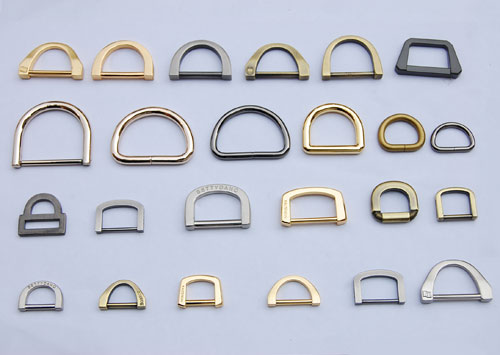Hello! Welcome to the official website of Dongguan Zhixin Handbag Accessories Co., Ltd.!



|
In early July, the Brazilian Foreign Trade Commission announced that after nine months of investigation, it has decided to impose a surcharge of up to 182% on semi-finished shoes and accessories from China. This is the second year since Brazil imposed anti-dumping duties on Chinese footwear in 2010, and it has once again tightened restrictions on the import of Chinese footwear. Brazil's sanctions on Chinese footwear began in 2008.At that time, Brazil tried to use Italy as a substitute country, but Italian shoes were at a high level and the price was higher, at an average of $ 31.96 / pair, while the average price of Chinese shoes was $ 5.97 / double. In 2010, Brazil decided to impose an anti-dumping duty of US $ 13.85 / pair on footwear products imported from China, which is valid for 5 years. In other words, every pair of Chinese shoes exported to Brazil will increase by about 100 yuan. In October 2011, after receiving a complaint from the local shoe industry association, the Brazilian government began an anti-dumping investigation on imported Chinese shoes.It concluded that China's shoe imports have increased significantly and already accounted for 60% of the raw materials used in the shoe industry. The value added in industrialized production is less than 25%. Do not export finished shoes, export footwear components, and then complete the final production in Brazil.These large numbers of imported Chinese shoes offset the original anti-dumping effect on Chinese shoes. Shoe companies charge 182% of tax on footwear accessories manufacturers. What impact does this new restriction have on Chinese shoe companies exporting to Brazil? Judging from the situation of sports shoe exporters in Putian, Fujian Province, it is not very optimistic, which directly hinders the export of sports shoes in Putian, especially the semi-finished football shoes. Export. It is reported that Putian is an important source of footwear exports to Brazil.After Brazil imposed anti-dumping duties on finished shoes imported from China in 2010, it had a serious impact on the export of local enterprises, and some enterprises, especially football shoe manufacturers, consolidated their businesses. Zero, to avoid anti-dumping by exporting semi-finished products or accessories to Brazil, and then molding into finished products in Brazil. However, this approach has also attracted the attention of Brazil, and new restrictions have been introduced specifically for this. According to statistics, in 2011, Putian City exported 74 batches of Brazil's footwear products alone, at $ 1.226 million, excluding semi-finished shoes or accessories. According to the relevant person from Putian Inspection and Quarantine Bureau, the re-implementation of anti-dumping measures in Brazil has already caused some local companies in Putian to temporarily suspend the production of orders for semi-finished products exported to Brazil. Other countries. Fortunately, unlike Putian, Wenzhou, which is a major export town for footwear, seems not to be affected much. Xie Rongfang, executive chairman of the Wenzhou Shoe Leather Association, said that Wenzhou exported a small amount of footwear to Brazil, accounting for less than 1%, and the export volume was around tens of millions of dollars, which had little impact. She predicts that after Brazil further strengthens restrictions on the import of Chinese footwear, these few Wenzhou footwear companies will likely abandon the Brazilian market. A relevant person in charge of a trading company in Wenzhou also said that the company plans to gradually reduce its market share in Brazil and move to other emerging markets. In fact, most Zhejiang shoe companies have long abandoned the Brazilian market. Hangzhou customs statistics show that from January to May this year, Zhejiang ’s exports of leather footwear products to Brazil were zero footwear accessories manufacturers. Song Yiguo, a member of the National Footwear Professional Group and director of the Textile Division of the Wenzhou Inspection and Quarantine Bureau, said that there are two main reasons for the zero exports of Zhejiang leather shoes to Pakistan. The most important is the escalating anti-dumping investigation. In the next step, people may be concerned about how to avoid these endless sanctions, and is there an effective solution? In this regard, relevant persons from the Ministry of Commerce pointed out that once it was determined to be an evasion, companies would export products from third countries to target countries Punitive tariffs will be paid at the anti-dumping rate previously determined. However, there is no way out. Chinese shoe companies directly going to Brazil to build factories are a good way to bypass their restrictions. If China wants to transfer shoe parts to Brazilian plants for assembly, then it is only necessary to control the value of Chinese parts to a certain level. Reasonable evasion can be achieved within the ratio. |

